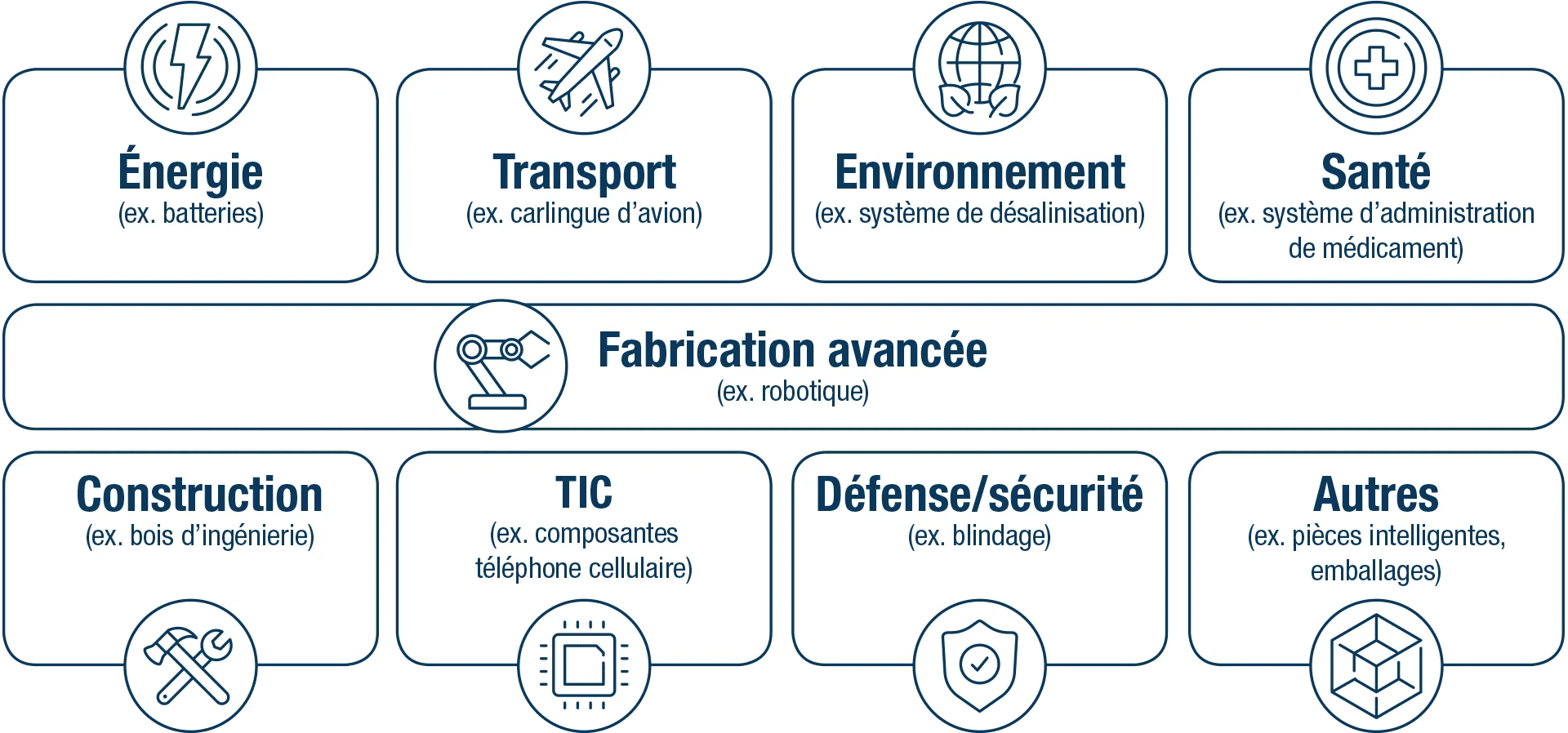Advanced manufacturing represents a revolution in the modern industrial world, integrating the use of innovative technologies to transform the creation of existing products and design new solutions. It is characterized by the adoption of processes such as additive manufacturing, enabling the creation of three-dimensional objects from digital files. By relying on advanced materials with unique properties, this approach offers engineers unprecedented flexibility in design definitions. The rise of automation and smart machines also plays a central role in optimizing processes, making notable improvements in efficiency, productivity, and the quality of end products within the framework of Industry 4.0.
Table des matières
ToggleAdvanced Manufacturing
Advanced manufacturing is a global term that encompasses the use of innovative technologies to produce existing products as well as develop new items. These technologies form the central pillar of Industry 4.0, where the integration of cutting-edge technologies profoundly changes production and product design methods.
Research related to advanced manufacturing aims to explore the various dimensions of the industrialization of innovative processes. Within this digital transformation, this approach to manufacturing emphasizes coordinated long-term planning and rapid short-term delivery, allowing for a quick response to changes in market demands.
One of the major objectives of advanced manufacturing is to increase operational efficiency, production flexibility, and productivity while enhancing the quality and performance of products. This often requires the use of new advanced materials, which are artificial elements with unique and new properties, thus providing a performance advantage.
Additive manufacturing, sometimes referred to as 3D printing, is a key component of advanced manufacturing. This process allows for the creation of three-dimensional objects by layering materials from digital data. 3D printing is revolutionizing design and production across many sectors, including the medical field, where it enables the manufacturing of customized prosthetics.
Industrial robots are playing an increasing role in advanced manufacturing, with the advent of automated and intelligent processes. This automation contributes to the high efficiency of contemporary production lines, thereby facilitating complex and repetitive processes. In this context, from small start-ups to industrial giants, innovations such as smart factories and collaborative platforms are embraced, at the heart of Industry 4.0.
In parallel, technologies such as 5G are paving the way for the Internet of Things (IoT) in the industrial sector. This greatly improves communication and information sharing within manufacturing facilities, making factories more interconnected and efficient. To discover how 5G unlocks the potential of IoT in Industry 4.0, click here.
Finally, integrated Enterprise Resource Planning (ERP) is emerging as a valuable tool in advanced manufacturing. ERP centralizes information related to all aspects of operations, thereby facilitating decision-making and process optimization. For a thorough understanding of ERP, check out this article here.

FAQ about Advanced Manufacturing
Q: What is advanced manufacturing?
A: Advanced manufacturing is the use of innovative technologies to create existing products and develop new products, improving design, quality, and performance.
Q: What are the main advantages of advanced manufacturing?
A: The main advantages include improved efficiency, productivity, and process flexibility, allowing engineers more options for product design.
Q: How does advanced manufacturing impact the industrial sector?
A: By adopting Industry 4.0 technologies, advanced manufacturing transforms the industrialization of innovative processes, paving the way for more automated and intelligent production.
Q: What materials are used in advanced manufacturing?
A: Advanced manufacturing uses advanced materials, which are artificial materials benefiting from unique and new properties, enabling a performance advantage.
Q: Why is additive manufacturing essential in this field?
A: Additive manufacturing, or 3D printing, is essential for the creation of three-dimensional objects from digital files, offering increased customization, especially in the medical field with the production of tailored prosthetics.





